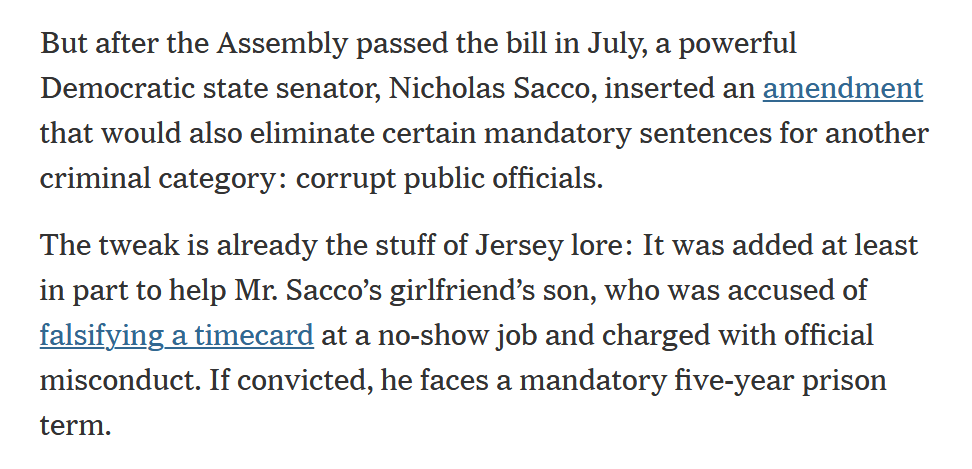
David has a great point--a lot of people's intuitions about whether DAs have a duty to bring all plausible charges are often bound up in their policy preferences about the particular types of charges/defendants.
https://twitter.com/WDavidBall/status/1346798050950299649
To be clear, people often draw a distinction between a prosecutor's decision not to bring charges in an individual case and a decision not to charge a certain category of cases.
These arguments are reminiscent of the arguments we saw in the debate over Obama's DACA policy.
These arguments are reminiscent of the arguments we saw in the debate over Obama's DACA policy.
The argument essentially boils down to the idea that prosecutors' executive power gives them discretion in individual cases, but decisions not to prosecute entire categories of cases are akin to decriminalization and so they infringe on the legislative power.
There are several responses to that argument. But my favorite is the idea of democratic accountability.
Usually decisions in individual cases are made by career prosecutors.
So the only way for the elected/appointed prosecutor to exercise discretion is through general policies
Usually decisions in individual cases are made by career prosecutors.
So the only way for the elected/appointed prosecutor to exercise discretion is through general policies
In any event, the bigger takeaway from David's point is that we should question whether our intuitions about prosecutorial power are really intuitions about the appropriate role of prosecutorial discretion, or whether they are about the substance of the specific decision.
Rebecca makes a great point here--that prosecutorial policymaking is an opportunity for local community input into criminal justice policy.
We've been trying to get a project on this issue off the ground @ppp_unc --- but that sort of research is expensive!
We've been trying to get a project on this issue off the ground @ppp_unc --- but that sort of research is expensive!
https://twitter.com/rebeccashaeffe/status/1346809491619246081?s=20
• • •
Missing some Tweet in this thread? You can try to
force a refresh



